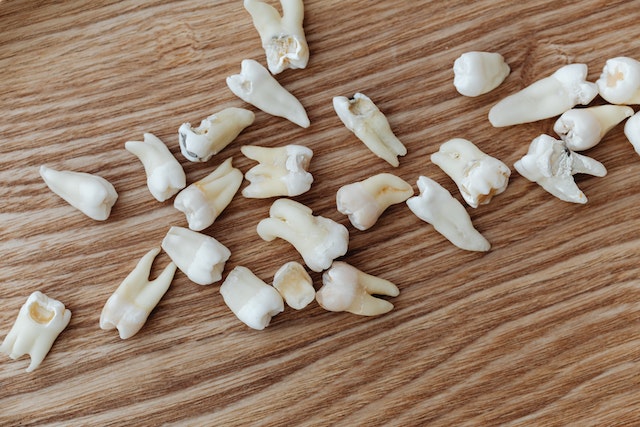Jun
21

Experiencing dental injuries and traumas can instill immediate fear and anxiety, but each case isn’t always a cause for immediate panic. However, understanding how to navigate such instances, including when to reach out to an emergency dentist, can make a world of difference. In the following article, we’re going go take a look at a number of common dental injuries and traumas, the steps you should take in the event of such occurrences, and what actions should be avoided to preserve your teeth and oral health. Let’s take a look!
What qualifies as a dental injury or trauma?
Dental injuries or traumas encompass a wide range of incidents that can affect your teeth, gums, jaw, or other parts of the oral cavity. They typically stem from accidents, sports injuries, falls, or even intense bouts of teeth grinding, known as bruxism. Here are some common examples:
Broken teeth
Broken, chipped, or cracked teeth are the most common forms of dental injuries. This can occur when biting on a hard piece of food, or due to a direct impact to the mouth. These injuries may cause mild discomfort to severe pain, and in some cases, the tooth may even be dislodged entirely.
Lacerations
Dental traumas also include injuries to the soft tissues of the mouth, such as lacerations to the lips, cheeks, or tongue. While these injuries can often be self-healing, if they are deep or don’t stop bleeding, they require immediate medical attention.
Fractures and dislocations
More severe dental traumas may involve jaw fractures or dislocations, which are often the result of significant impacts to the face. These incidents can cause immense pain and difficulty in opening and closing the mouth, warranting immediate attention from an emergency dentist.
Read More: Can a knocked-out tooth be saved in a dental emergency?
Loose teeth
Lastly, dental trauma can also be as subtle as a loose tooth, especially in adults where such a phenomenon is not normal. Any tooth movement post trauma should be assessed by a professional to rule out damage to the underlying structures.
Steps to take in the event of a dental injury or trauma
Evaluate the situation
The first step in any dental emergency is to assess the severity of the injury. Determine if there’s severe pain, bleeding, or loss of consciousness, which are all signs of a serious dental injury.
Seek immediate medical attention
Whether it’s a knocked-out tooth or a bitten tongue, it’s vital to contact an emergency dentist as soon as possible. In severe cases, you might need to head straight to the hospital.
Learn about the differences between emergency vs. regular dentists.
Care for the injury at home
If you’re waiting to see a dentist, there are measures you can take to alleviate pain and prevent further damage. This could involve rinsing your mouth with warm salt water, applying a cold compress to reduce swelling, or using a topical anaesthetic to numb the area.
Save any lost pieces of tooth
If a tooth is chipped or knocked out, preserve any fragments in a container of milk or saliva to give your dentist the best chance of restoring your natural tooth.
What not to do
In times of panic and distress, it can be easy to take actions that you believe might help, but may actually cause more harm. Here are a few things you should avoid doing in the event of a dental injury or trauma:
Do not ignore pain or an injury
Even if the pain subsides quickly, ignoring a dental injury can lead to more severe problems in the future. You may have internal damage that isn’t immediately evident, so always seek professional help.
Avoid using sharp objects
If something is lodged between your teeth, using a sharp object to try and dislodge it can cause further injury. Instead, try using dental floss or a dental pick, and if the item doesn’t come out easily, seek help from a dentist.
Don’t clean a knocked-out tooth with soap
This can damage the root surface, making it much more difficult for the tooth to be successfully re-implanted.
Avoid applying heat to a swollen face
Heat can speed up the spread of an infection, so it’s better to use a cold compress to help manage any swelling.
The bottom line
Experiencing a dental injury or trauma can be an alarming event, so don’t feel bad if you end up panicking while waiting for an emergency dentist appointment. However, the best defence against unexpected accidents is always a good offence, and in this context, that offence is knowledge and preparedness. Stay informed of what steps to take in the event of a dental emergency, and you’ll be well-equipped to handle any dental issues that come your way.
Read Next: Can a Knocked Tooth be Saved in a Dental Emergency?










